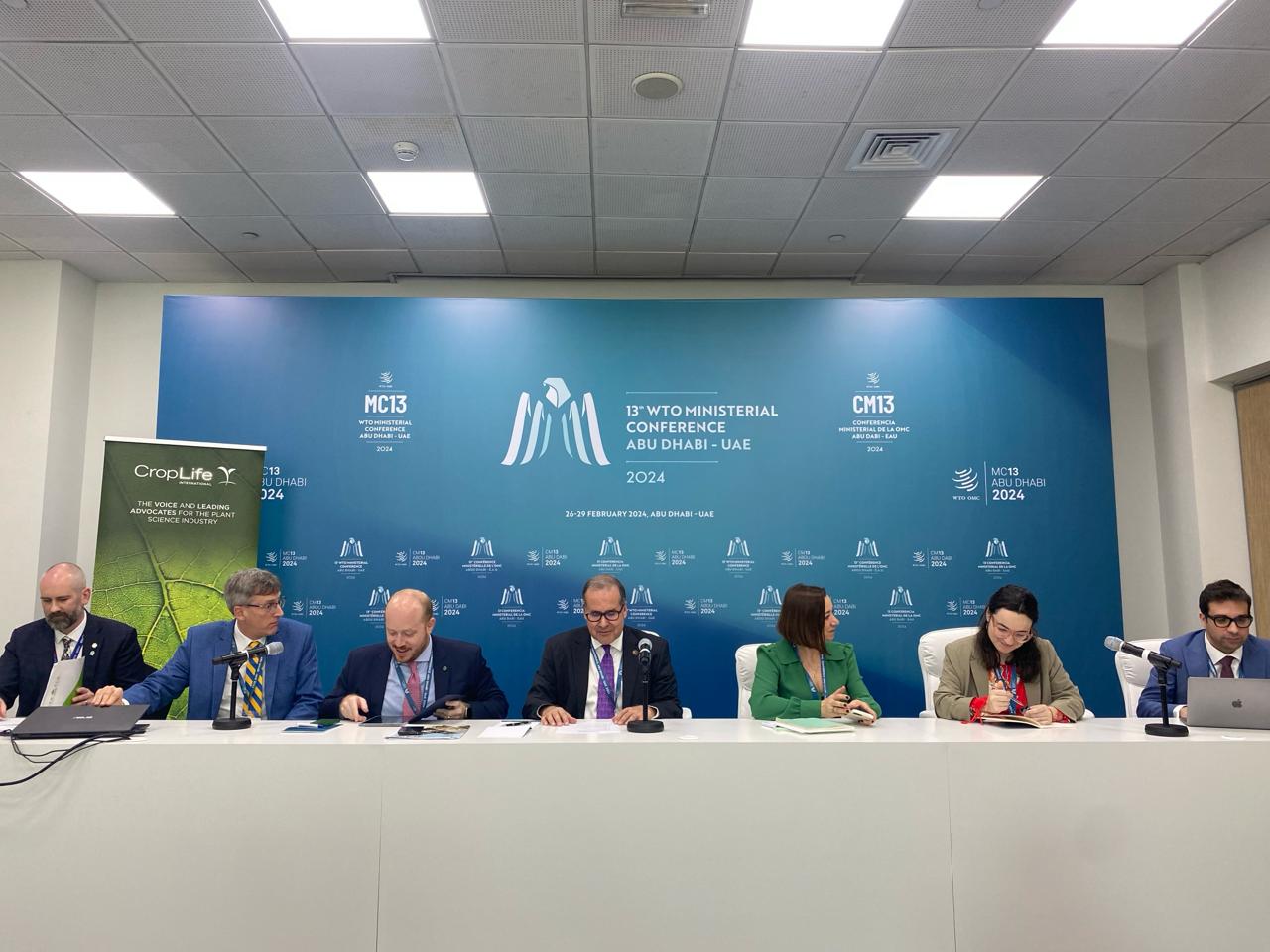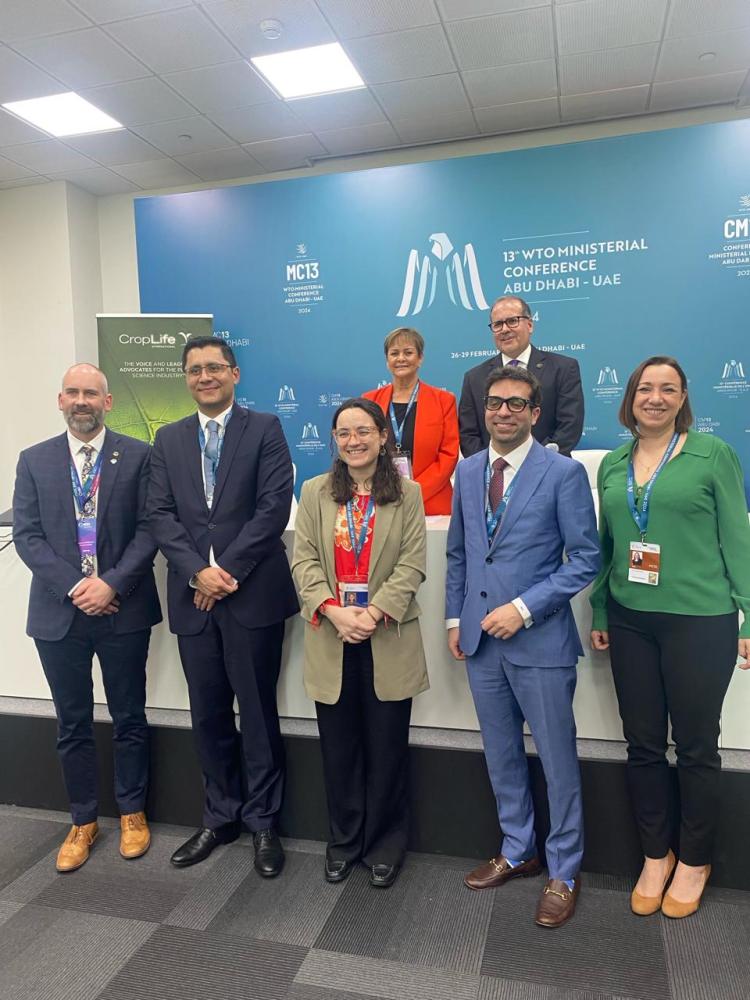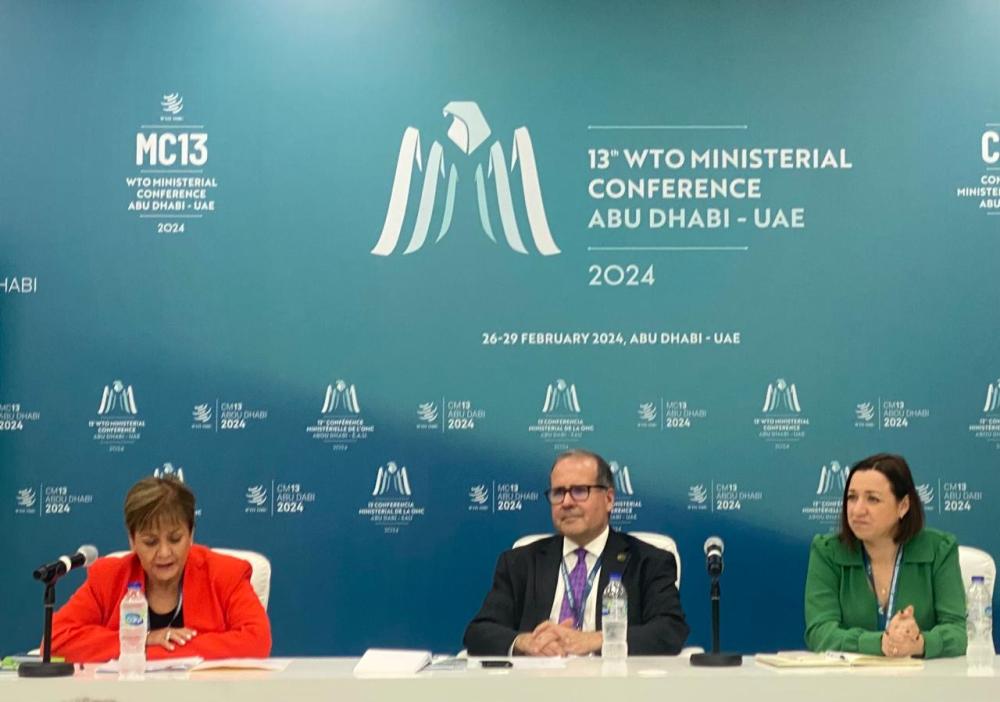The debate focused on the role of international trade in helping farmers to access innovation and new tools that facilitate their way to international markets, which is especially important for farmers in developing countries.

Abu Dhabi, United Arab Emirates, March 21, 2024 (IICA) – International trade generates development for countries, improves the quality of life of people, promotes innovation and is essential to guarantee food security and incomes of citizens. small farmers, representatives of international organizations, negotiators, agricultural producers and members of the private sector agreed, during the recent Ministerial Conference of the World Trade Organization (WTO), in Abu Dhabi, United Arab Emirates.
It was a panel organized within the framework of the Conference by CropLife International, a global association of companies that promotes the use of new technologies to increase productivity and sustainability in agriculture, and the International Institute for Cooperation on Agriculture (IICA).
The debate focused on the role of international trade in helping farmers to access innovation and new tools that facilitate their way to international markets, which is especially important for farmers in developing countries. These have proven particularly vulnerable in recent years to the Covid-19 pandemic and geopolitical crises and are the main victims of climate change.
The speakers at the event were: Emily Rees, President and CEO, CropLife International; Tayutic Mena of Costa Rica, currently Chair of the SPS Committee; Sofia Boza, Ambassador Permanent Representative to the WTO of Chile; Martín Alvez, Ministry Conselour of Uruguay; Jason Hafemeister, Acting Deputy Under Secretary for Trade and Foreign Agricultural Affairs; Julio Ramos, Deputy Secretary of Commerce and International Relations for Ministry of Agriculture of Brazil; Brodie Berrigan, Representative from World Farmers’ Organization.

Three dimensions of sustainability
During the debate, it was pointed out that the sustainability of production must consider the economic,
social and environmental dimensions and the important role that multilateralism and the WTO as an institution must play was highlighted.
In this sense, it was warned that there is no single path to achieve sustainable agriculture and that each region must develop its own model according
to its environmental conditions, the structure of its soils, its natural resources and culture and widespread good practices. among the inhabitants
of their rural areas. Trade policies must recognize the diversity of sustainable production models to facilitate trade, which in turn is a key element of
global food security.
CropLife International and IICA committed to work together with key actors in other international forums to promote the
full development of the productive potential of agriculture and ensure that environmental norms and standards contribute to
sustainable development. In that sense, they agreed that unilateral measures promoted with the argument of environmental conservation should not be
barriers to trade that cause unjustified economic and social costs to countries.
The participants agreed that technological innovation in the agri-food sector can truly provide the necessary tools to produce safe, nutritious and accessible food for the world’s population and, at the same time, contribute to the fight against climate change. In this sense, it was warned that inadequate regulations can generate complexity, higher costs and barriers for business, undermining the role of international trade.

More information:
Institutional Communication Division.
comunicacion.institucional@iica.int











